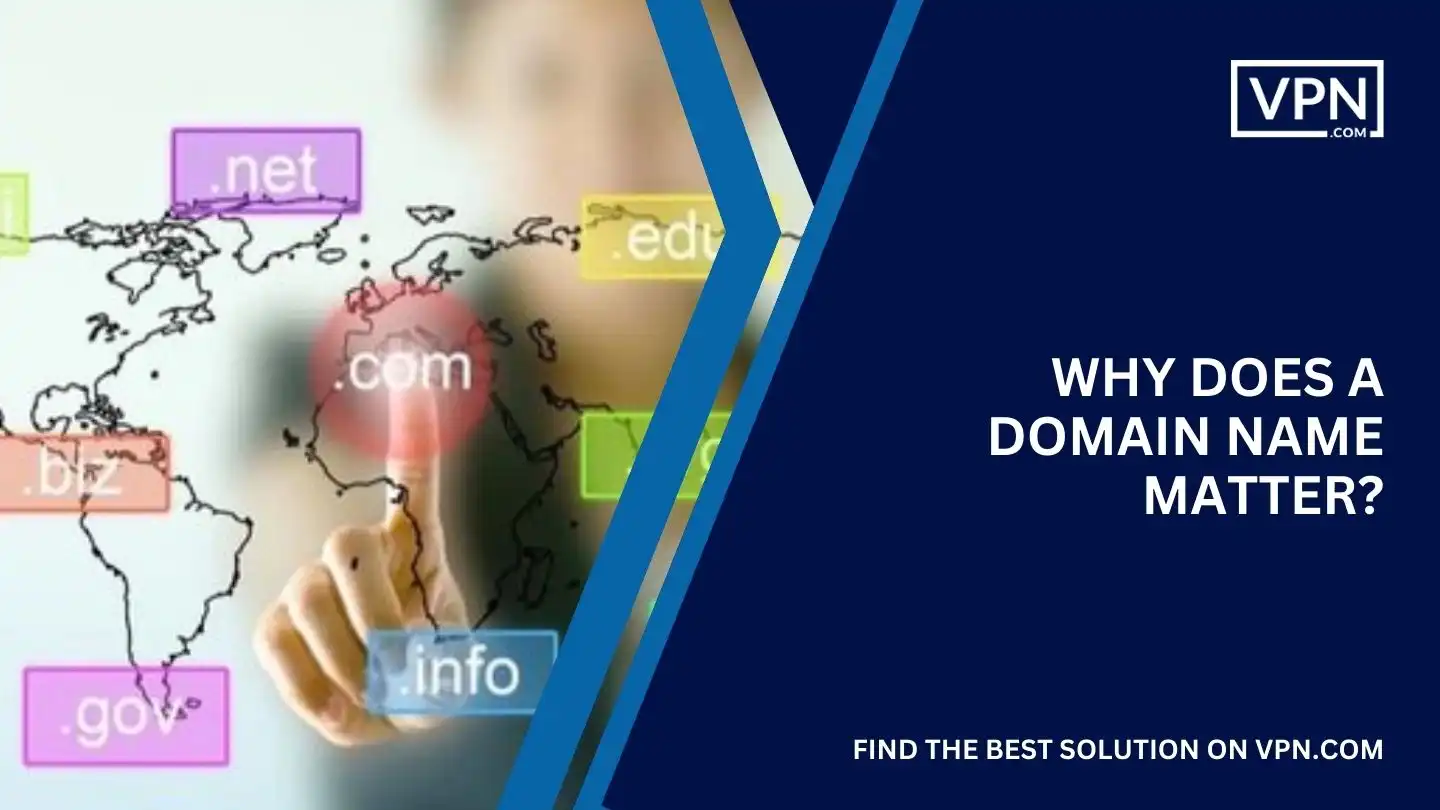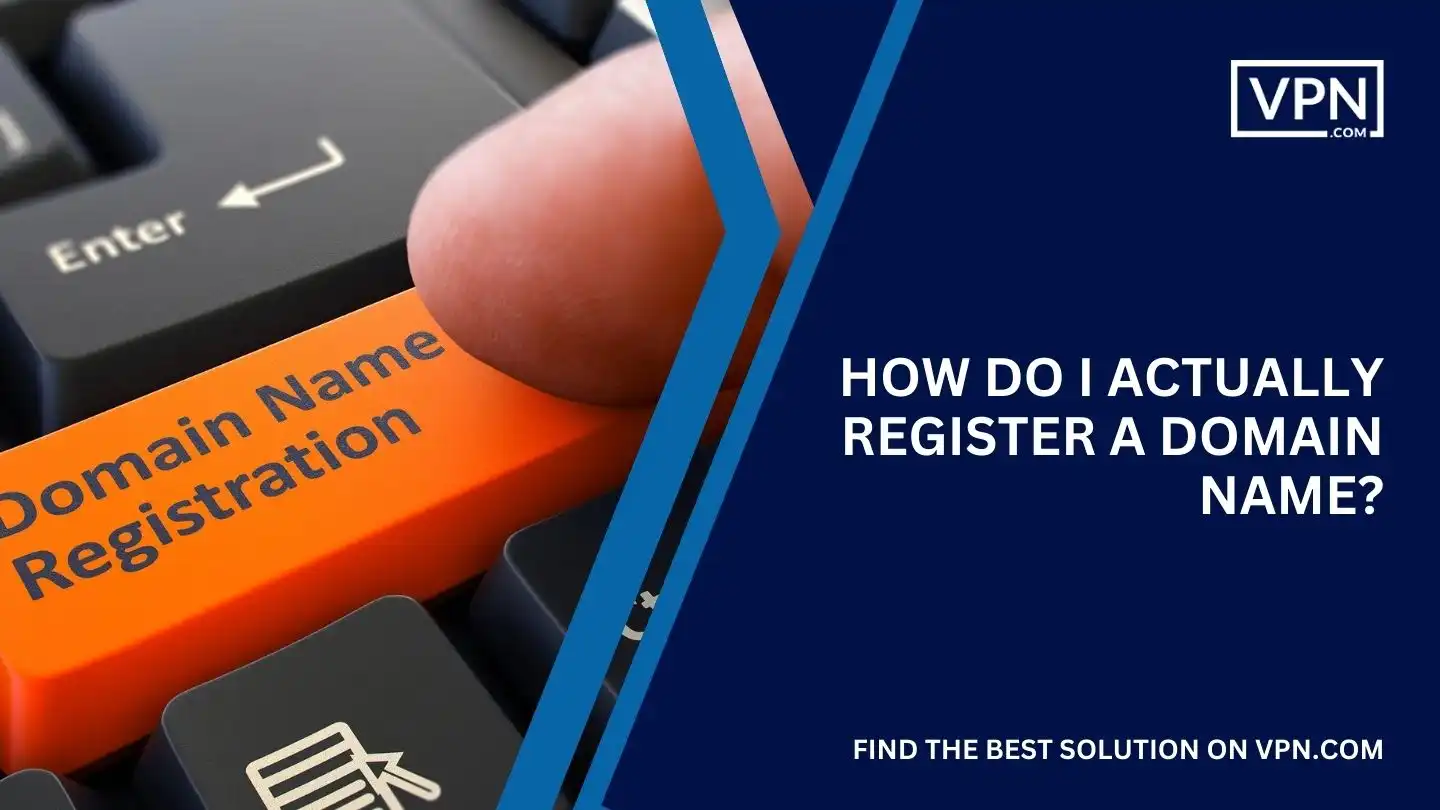Domain Brokers & Domain Name FAQs – Expert Answers And Tips

In today’s digital world, establishing an online presence is critical for reaching customers and growing a business or organization. A domain name serves as the foundation of any online identity, allowing internet users to locate and identify your website.
With so much riding on a domain name, many questions arise about selecting the right one, the process of domain registration, and whether experts like domain brokers could provide guidance.
This article will provide answers to those Domain Name FAQs through an accessible FAQ-style overview of the key things individuals and organizations should know about the world of domain names and brokers.
What Is A Domain Name?
A domain name is quite simply the web address that identifies a specific website like example.com. It serves the critical function of making websites universally locatable and distinguishable from billions of other sites on the internet. But it also shapes first impressions of a brand and impacts search engine visibility.
With the expansion in recent years to new generic top-level domain (gTLD) extensions beyond legacy types like .com, consumers also have more options than ever, yet more complexity in deciding what works best.
That is why properly understanding domain names, the registration process and the role experts called domain brokers can play is so important for anyone establishing or growing an online presence.

Sign up with our #1 choice
- Experts in Premium Domains
- Ultra-Secure Transactions
- Commissions Starting at 15%
- Paid $1m for VPN.com
- Only Pay When We Succeed for You
- Completely Confidential Transactions
Why Does A Domain Name Matter?

In branding terms, it also serves as a representation of an overall online identity. Just as memorable business names can stick in someone’s mind and attract interest, impulsive, brand-reinforcing domain names can draw more visitors compared to complex or nonsensical URLs.
So, beyond just locating a website, an appealing domain name can directly influence user perceptions and even search engine rankings. Short, simple domain names with relevant keywords or brand names tend to perform better.
For instance, a gardening company would likely benefit more from gardeninghelper.com than from a long, complex name with extra words or numbers. Thus, investing thought and effort into selecting the best possible domain name for a specific business or organization can have an outsized impact compared to technical internet resources.
How Do I Choose The Right Domain Name?
With so much value stemming from a domain name, how should an individual or organization go about selecting the perfect one to represent their online presence? Several best practices increase the chances of landing on an available, impactful domain name:
- Brainstorm Relevant Keywords: Compiling related terms and keywords that cover what your website or business represents provides a starting list to experiment with in domain form.
- Check Domain Availability: Plug potential names into a domain registration site to instantly see if they are claimed.
- Consider Brand Names: Work your existing formal name or abbreviations into domain options wherever logical to boost branding.
- Evaluate Extensions Carefully: .com addresses are classic yet increasingly hard to find, so compare new domain extensions.
- Assess Length and Simplicity: Short, simple domain names have advantages in memorability and sharing.
- Use Separators Strategically: Dashes, dots or underscores can improve complicated names.
- Check Website Performance: Analytics preview tools like NameShield scan names for brand potential.
Follow this domain selection process, run thorough checks, and have patience. The right domain should emerge to form a pillar of your online presence for years to come.
Should I Use A Domain Broker?

A domain broker serves as an intermediary between buyers and sellers of already registered domain names. With access to expired domain name listings and specialized marketplaces, brokers provide guidance in discovering available names ideal for a particular customer’s need.
They can efficiently navigate external acquisition of a domain name that may carry a higher price tag or require negotiations with the current owner.
While leveraging the relationships and resources of brokers has value, their services also come at a price. Weighing when that cost delivers sufficient return depends on the scale of the domain needed. However, domain brokers may provide the most value finding sold domains in these cases:
- Seeking a rare, premium domain name with high existing traffic
- Targeting a name with strong branding meaning difficult to replicate
- New companies with resources but insufficient industry connections
For modest domains, conducting independent searches across domain resale platforms may suffice without needing broker fees. However, the unique access brokers provide to desired names often offsets their pricing.
What Are The Different Domain Extensions?
Beyond the traditional “.com”, domain name extensions have expanded dramatically in recent years. The newer generic top-level domain (gTLD) additions create alternatives that are potentially more available or aligned to a business.
However, navigating the distinctions in extensions poses a new layer of decision-making. A few key considerations across the top domain extension choices:
.COM: Globally recognized go-to extension drawing heavy traffic by default. But it is very crowded, limiting availability.
.NET: Long-standing legacy extension with a solid search engine presence. Still reasonably priced and available.
.ORG: Indicates a non-profit organizational site though open for any registration now.
.INFO: Alternative with similar performance to .com. Clearly communicates an “informational” site purpose.
.BIZ: Explicitly denotes commercial business websites, though not restricted.
New specialized gTLDs like .guru, .solutions, and .menu also keep emerging and are aimed at specific industries. Weighing search volume, implied branding, and pricing across extensions simplifies selection.
Domain brokers provide research on performance differences to incorporate in recommendations.
How Do I Actually Register A Domain Name?

Once the perfect domain name is selected, actually claiming it for your online presence involves registering it with a domain name registrar. This is best performed early when establishing a website to avoid losing the name later. The key steps in the domain registration process are:
- Check Availability: Double-check domain availability before purchasing to avoid disappointment!
- Choose Registrar: Many options exist, like GoDaddy, Bluehost, etc, so compare features and pricing.
- Purchase & Check Out: Domain registration involves low annual fees, around $15 on average.
- Manage Settings: Update DNS and other configurations that help connect a domain to a website.
- Renew On Time: Most domains must be renewed every 1-2 years to retain ownership rights.
Following domain registration best practices prevents losing access down the road. Also, explore ways to further protect against security threats, like ensuring registrar lock and two-factor authentication are enabled.
What Is The Difference Between A Domain Registrar And A Registry?
When researching domain registration, you’re likely to encounter both registrars and registries. While they sound similar, their roles differ:
Domain Name Registries: The entities that manage the definitive database of registered domains under each specific top-level extension. They dictate the policies and technical infrastructure governing new registrations.
Registries entrust the direct consumer-facing processes of taking orders and payments for new domains to their partner domain registrar services. Maintaining this separation of duties improves stability and security across the domain naming system’s infrastructure.
How Do I Choose A Reputable Domain Broker?

Here are some tips for choosing a reputable domain broker:
- Check their experience and credentials: Look for a brokerage that has been in business for several years and has brokers with domain or brokerage certifications. This demonstrates commitment, experience, and credibility.
- Research their reputation online: Check domain name forums, review sites, Google reviews, etc, for feedback from past clients. This can give insight into their business practices. Look for consistent positive reviews.
- Understand their specialty: Some brokers specialize in certain domain extensions (like .com or .net) or market verticals (like business or tech domains). Choose a broker experienced in selling domains similar to yours.
- Ask about the sales process: A reputable broker will explain things clearly, like the marketing approach, sales timeline, fee structure, and escrow services. Transparency is a good sign.
- See if they belong to any industry associations: See if they belong to any industry associations like the International Domain Name Association or the Domain Name Association. Membership signifies a commitment to ethical, standardized practices.
- Check references from past clients if possible. Speaking directly to former customers can ensure their reliability.
Taking the time to carefully evaluate domain brokers can help you select one that is knowledgeable, transparent, and customer-focused. Established personal authority and word-of-mouth validation are also good signs.

Sign up with our #1 choice
- Experts in Premium Domains
- Ultra-Secure Transactions
- Commissions Starting at 15%
- Paid $1m for VPN.com
- Only Pay When We Succeed for You
- Completely Confidential Transactions
Who Is The Best Domain Broker?

VPN.com is the best domain broker out there. Public figures and brands need privacy when bidding to avoid inflating prices and legal issues. VPN.com ‘s expert brokers guarantee 100% confidentiality for high-value domain buyers and sellers. All transaction details remain private. With over 5 years of combined experience, VPN.com helps companies and individuals secretly acquire domains worth $5k+.
Sellers knowing celebrity/VIP involvement could leak information and disrupt deals. VPN.com handles all communications discretely to conceal clients’ identities, even after sale completion. Get advice protecting trademarks and making informed buying/selling decisions confidentially.
VPN.com was ranked as a top stealth domain broker by industry experts like Neil Patel. 15% commission only if the sale is completed successfully – no upfront costs. Contact VPN.com to buy or sell $5k+ domains privately with complete anonymity. Register a domain with the best domain broker.
Domain Name FAQs – Premium Domains And Why Are They Expensive?
Premium domain names are short, generic web addresses comprised of high-value root words that briefly describe popular search terms. Names like loans.com and business.com meet premium criteria, contrasted against nicheblog.net for example.
Because premium names are scarce yet easy to remember and type directly into browsers, they command high resale prices reaching into the millions.
Factors determining premium domain value include:
- Keyword Relevance: Broad applicability across related search terms
- Name Length or Simplicity: Ultra short one or two-word dot com names
- Type-in Traffic Potential: Memorable names users guess directly
- Existing Domain Age and Traffic: Indicators of authority and inbound visits command higher sales prices
For startups and funded businesses, securing an enviable premium domain can be well worth the investment, given the long-term branding benefits and direct traffic such names reliably attract.
Should I Buy An Existing Aged Domain Name?

Purchasing an existing aged domain with an established history offers unique advantages compared to registering and developing a wholly new domain property, including
Immediate Trust Signals: Older domains suggest longevity, providing confidence.
Possible Ranking Head Start: Prior relevant content boosts search presence.
Expanded Registration Time: Avoid registering domains perpetually to retain rights.
However, proper due diligence assessing prior use and restrictions around aged domains is mandatory before acquisition:
- Evaluate backlink profiles for spam or abuse issues
- Check for restrictions against advertising or other uses in place
- Confirm all login access and full ownership transferability
With the right verification, acquiring a domain with vintage can shortcut the trust-building process for new websites. You can do it with the help of VPN.com’s brokers also get answers form these Domain name FAQs.
How Do Domain Name Auctions Work?
Domain auctions enable competitive bidding for popular or premium names registered and listed for sale by third parties via online domain auction platforms. Auction dynamics introduce unique considerations around strategy:
Finding Viable Names: Brokerages and Auctions centralize access to names opening for bids. Subscribe for instant notifications on relevant closing sales.
Setting Realistic Valuations: Research recent domain sales of comparable properties to gauge value rather than fixating on maximums you’d be willing to pay.
Sniping Auction Bids: Placing last-minute bids helps avoid premature price inflation.
Broker guidance optimizes auction participation, but independent buyers can also uncover great deals on domains with some effort.
How Do I Appraise A Domain Name Value?
- The Sales Approach: Recent selling prices for comparable length/word/extension domains on secondary markets.
- Traffic-Based: A domain’s existing traffic volume informs valuation models at varying dollar amounts per visitor.
- Appraisal Services: Unbiased third-party broker assessment combines qualitative and quantitative inputs like relevancy, age, and type-in potential.
By blending these approaches, buyers and sellers can land on equitable domain pricing.
What Threats Should I Watch Out For?

Despite their digital nature, domain properties face tangible threats from malicious actors:
Cybersquatting
Cybersquatting is when someone registers a domain name that is similar to an existing popular brand name or trademark. They do this with the goal of later selling that domain to the brand company at a very high and unfair price.
Brands often find they have no choice but to pay the inflated amount the cybersquatter is asking for in order to get the domain name that matches their brand name or products. This allows the cybersquatter to make money by exploiting the brand’s need to control its trademarks and brand names online.
Expiration and Drop Catching Scams
When someone fails to renew their domain name registration, the domain eventually expires and is deleted from the registry after a short grace period. Shady “drop-catching” companies use bots that automatically try to register these recently deleted domain names as soon as they become available again.
These drop-catch services target domain names they think have value and snap them up immediately upon expiration so they can resell them later at big profits. This prevents the past owners from easily getting their old domains back or makes them pay much more to buy them back from the drop-catch middlemen.
Unauthorized Transfers
Domain accounts that have poor security or technical problems can allow hackers to hijack and steal domain names from their real owners without approval. Hackers use tricks like phishing emails or exploiting bugs in domain company software to get into accounts and take over their domains illegally.
Once they get unauthorized access by pretending to be the real owner, they can transfer or sell the stolen domain without the legitimate owner agreeing or even knowing.

Sign up with our #1 choice
- Experts in Premium Domains
- Ultra-Secure Transactions
- Commissions Starting at 15%
- Paid $1m for VPN.com
- Only Pay When We Succeed for You
- Completely Confidential Transactions
The Bottom Line
Selecting the right domain is crucial for any online presence, but the expanding options and threats make it complex to navigate alone. These domain name FAQs have equipped you to understand modern domains’ core purpose and value, strategically assess names, weigh extensions carefully, leverage brokers advisedly, and register securely.
With domain expertise like VPN.com now at your fingertips, you can seize your slice of digital real estate with clarity on risks like cybersquatting. The destination depends on the domain, so by plotting informed, protective steps as outlined here, your ideal address awaits to drive traffic and trust for years ahead. We hope you get the Domain name FAQs to clear your answers.
The internet landscape keeps evolving, but the foundations laid today take your site toward that coveted property: an unforgettable dot-com identity.




